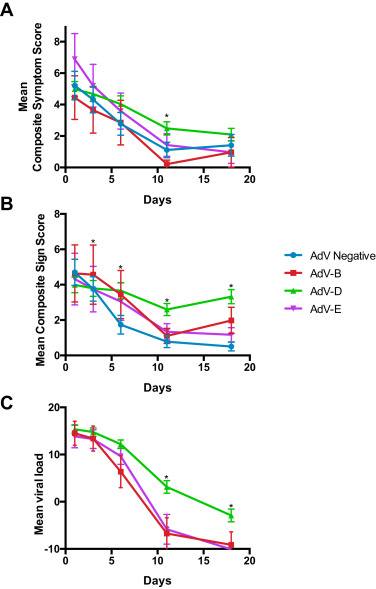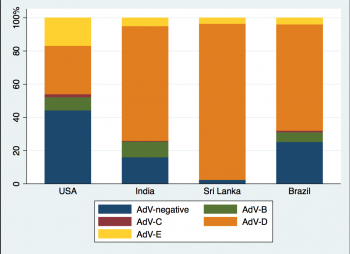In this study, Dr. Cecilia Lee, Dr. Aaron Lee, and their coauthors performed a retrospective analysis of 500 patients with keratoconjunctivitis to identify the specific pathogens and host factors that were associated with worse outcomes. Conjunctivitis is a very common condition, most often caused by adenovirus D species. In the most severe cases patients can develop subepithelial infiltrates which can lead to vision loss.

There were several interesting findings. The authors identified a much wider variety of pathogens than expected, but also found that in many cases (22%) there was no detectible adenovirus, suggesting that other pathogens may be involved. They found that patients infected with adenovirus D had more severe symptoms and a longer disease course than those infected with other adenoviruses. Around 20% of the patients experienced some vision loss. In addition, patients' country of origin had an effect the evolution of clinical symptoms, development of subepithelial infiltrates, and clearance of viral load, an effect that did not depend on the type of adenovirus involved.
Taken together, the results from this study indicate that there it may be useful to routinely test and identify the adenovirus species in conjunctivitis cases to better predict outcomes and manage outbreaks. Host factors also play a role in determining the course of the disease.
Lee CS, Lee AY, Akileswaran L, Stroman D, Najafi-Tagol K, Kleiboeker S, Chodosh J, Magaret A, Wald A, Van Gelder RN. Determinants of Outcomes of Adenoviral Keratoconjunctivitis. Ophthalmology. 2018 Sep;125(9):1344-1353. doi: 10.1016/ j.ophtha.2018.02.016. Epub 2018 Mar 27. PubMed PMID: 29602567; PubMed Central PMCID: PMC6109430.

